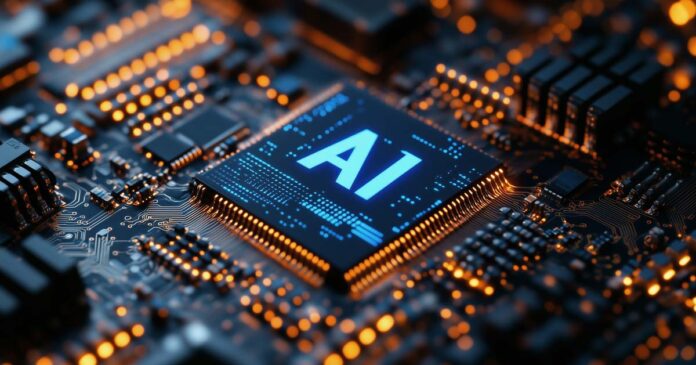Artificial intelligence has emerged as the cornerstone of Amazon’s ongoing evolution, with the tech giant unveiling a series of ambitious innovations over the past year. Among the most significant advances: the launch of a new large language model (LLM) for Alexa, the introduction of Amazon One, a biometric palm recognition system for payments and access, and the announcement of an $8-billion investment in the AI startup Anthropic. Now, Amazon is setting its sights on transforming the AI infrastructure market itself, challenging Nvidia’s long-standing dominance in the world of AI chips.
Amazon and Anthropic team up with an $8 billion commitment
Amazon is now partnering with Anthropic, an AI startup valued at $18 billion and rising, to build a cutting-edge AI supercomputer powered by Amazon’s custom-designed Trainium chips. This supercomputer project, code-named “Project Rainier,” is set for completion in 2025 and is expected to become one of the largest AI computer clusters globally. It will help Anthropic train its AI models, which require immense computational power to process vast datasets and generate outputs like text and images.
“Together with Anthropic, AWS [Amazon Web Services] is building an EC2 UltraCluster of Trn2 UltraServers—named Project Rainier—containing hundreds of thousands of Trainium2 chips and more than 5x the number of exaflops used to train their current generation of leading AI models,” Amazon said in a statement.
In developing its own chip technology, Amazon aims to challenge Nvidia’s dominant position in the AI chip market, where Nvidia controls over 70% of the market share with its GPUs (graphics processing units). These GPUs have become the industry standard for running AI models and are essential tools for businesses in fields like generative AI, powering applications such as OpenAI’s ChatGPT and Google’s Gemini.
“Trainium2 is purpose built to support the largest, most cutting-edge generative AI workloads, for both training and inference, and to deliver the best price performance on AWS,” said AWS VP David Brown in a press release.
“With models approaching trillions of parameters, we understand customers also need a novel approach to train and run these massive workloads. New Trn2 UltraServers offer the fastest training and inference performance on AWS and help organizations of all sizes to train and deploy the world’s largest models faster and at a lower cost,” he added.
Amazon challenges Nvidia’s pricing dominance
Speaking with The Wall Street Journal, AWS CEO Matt Garman underscored the need for greater competition in the AI chip industry, saying, “Today, there’s really only one choice on the GPU side, and it’s just Nvidia. We think customers would appreciate having multiple choices.”
Amazon is making a bold move to take on Nvidia’s pricing power head-on. By rolling out its custom-designed chips, the tech giant is cutting out the intermediary and gaining more control over its supply chain, slashing its reliance on Nvidia’s expensive GPUs. Amazon promises its second-gen Trainium chips, or Trainium2, will deliver a 30% to 40% “better price performance” than the competition. This price tag punch is key as Amazon works to woo customers in need of cheaper, more scalable AI solutions.
As part of this strategy, Amazon Web Services has unveiled a new Ultraserver, a cutting-edge system powered by 64 interconnected chips. Engineered to harness the full potential of Trainium processors, this high-performance server seamlessly integrates multiple processors into a unified cluster, optimizing scalability for AI workloads. By delivering exceptional computational power while minimizing energy consumption, Amazon’s new Ultraserver initiative provides a cost-efficient and sustainable solution for handling the most demanding AI tasks.
Apple’s partnership with AWS highlights Trainium’s potential
Major players are already paying attention, with Apple actively working to integrate Trainium chips into its Apple Intelligence AI technology. Apple revealed its usage of Amazon’s proprietary chips at the annual AWS Reinvent conference.
Amazon faces a tough road ahead as it takes on Nvidia’s dominance in the AI chip market, and it is not alone in this challenge—companies like Microsoft and Google are also developing their own AI chips to lessen their dependence on Nvidia, signaling a broader industry shift toward self-reliance. Amazon’s move could reshape the market, but the outcome remains uncertain as multiple players vie for a larger piece of the pie.
Photo by Anggalih Prasetya/shutterstock.com




